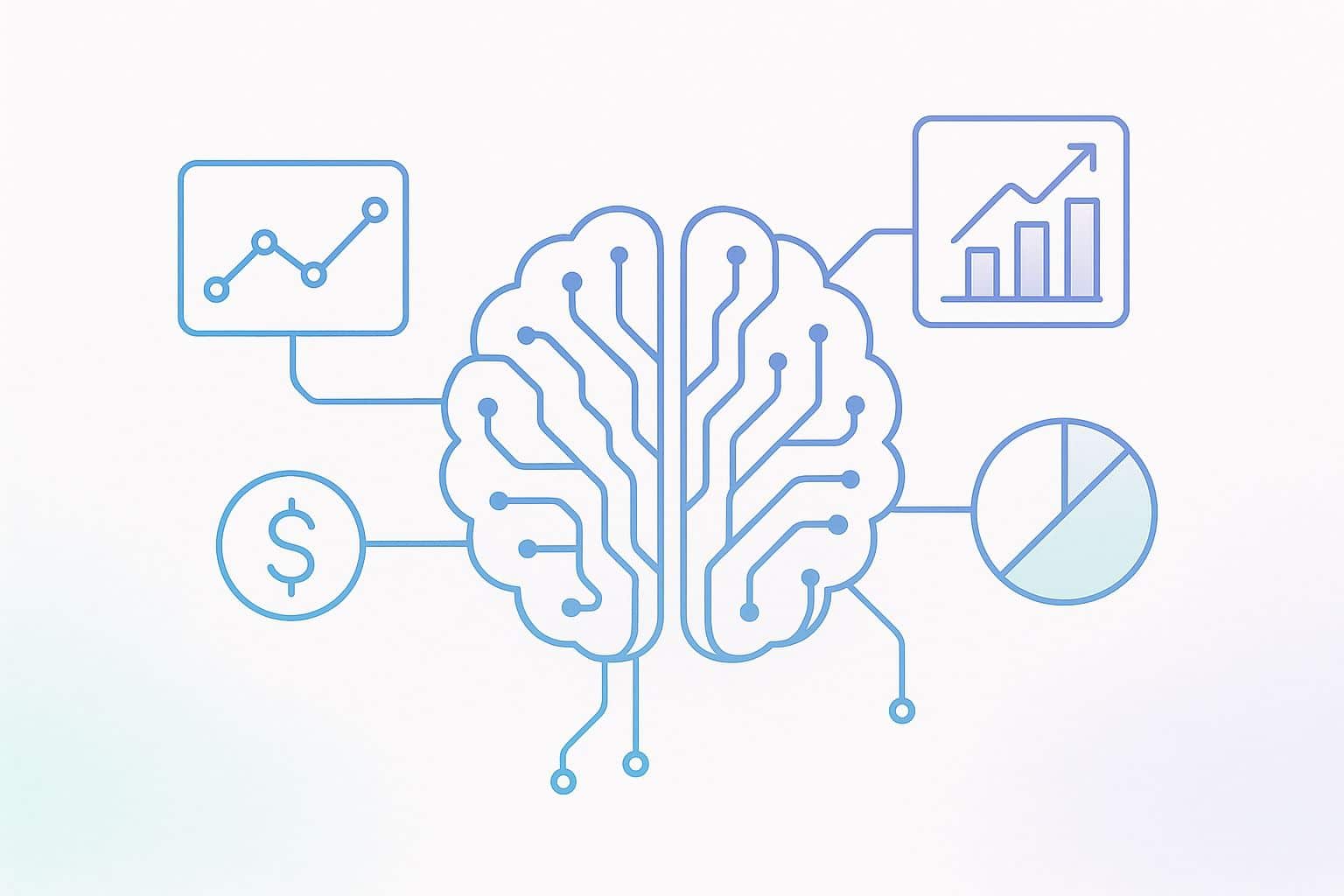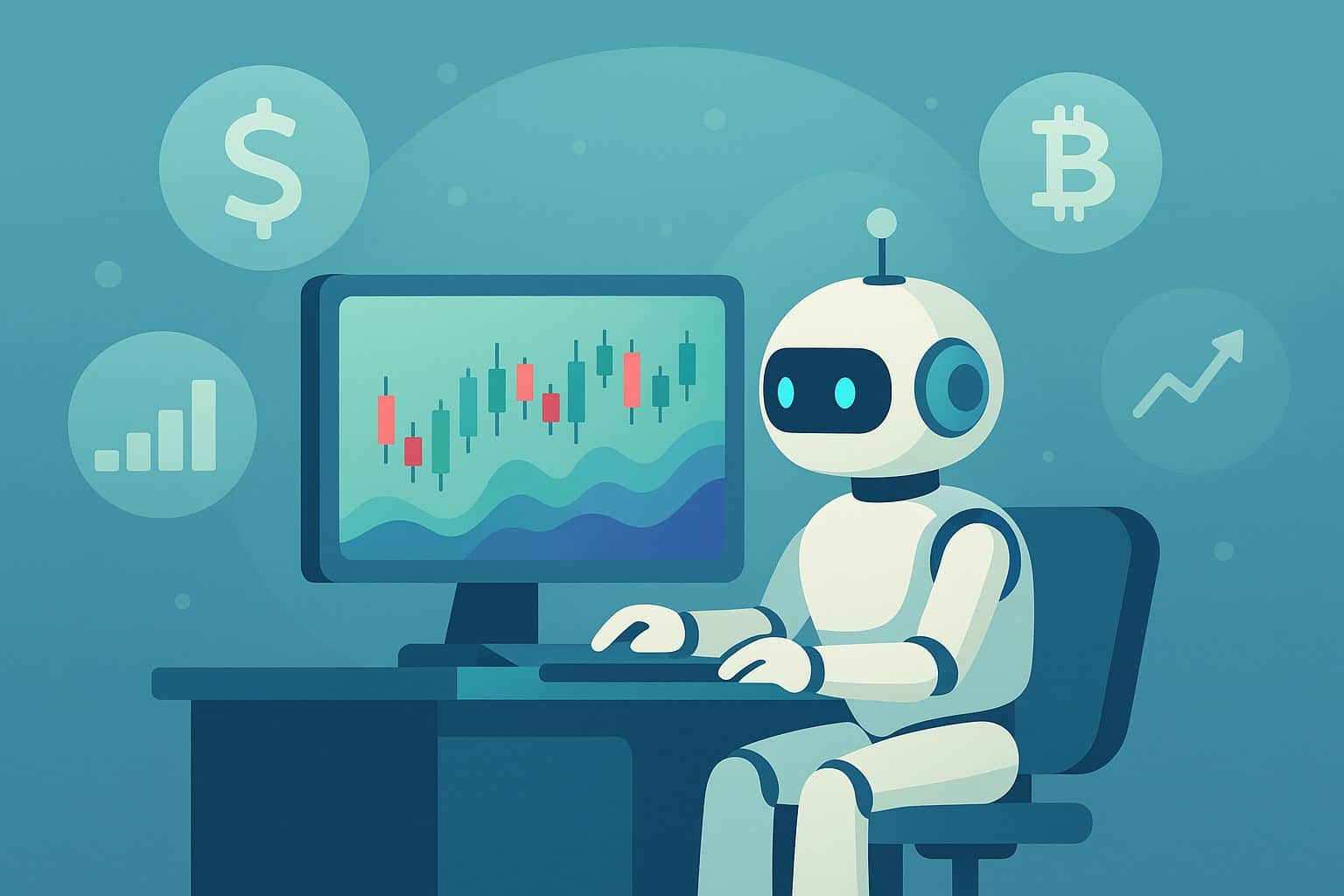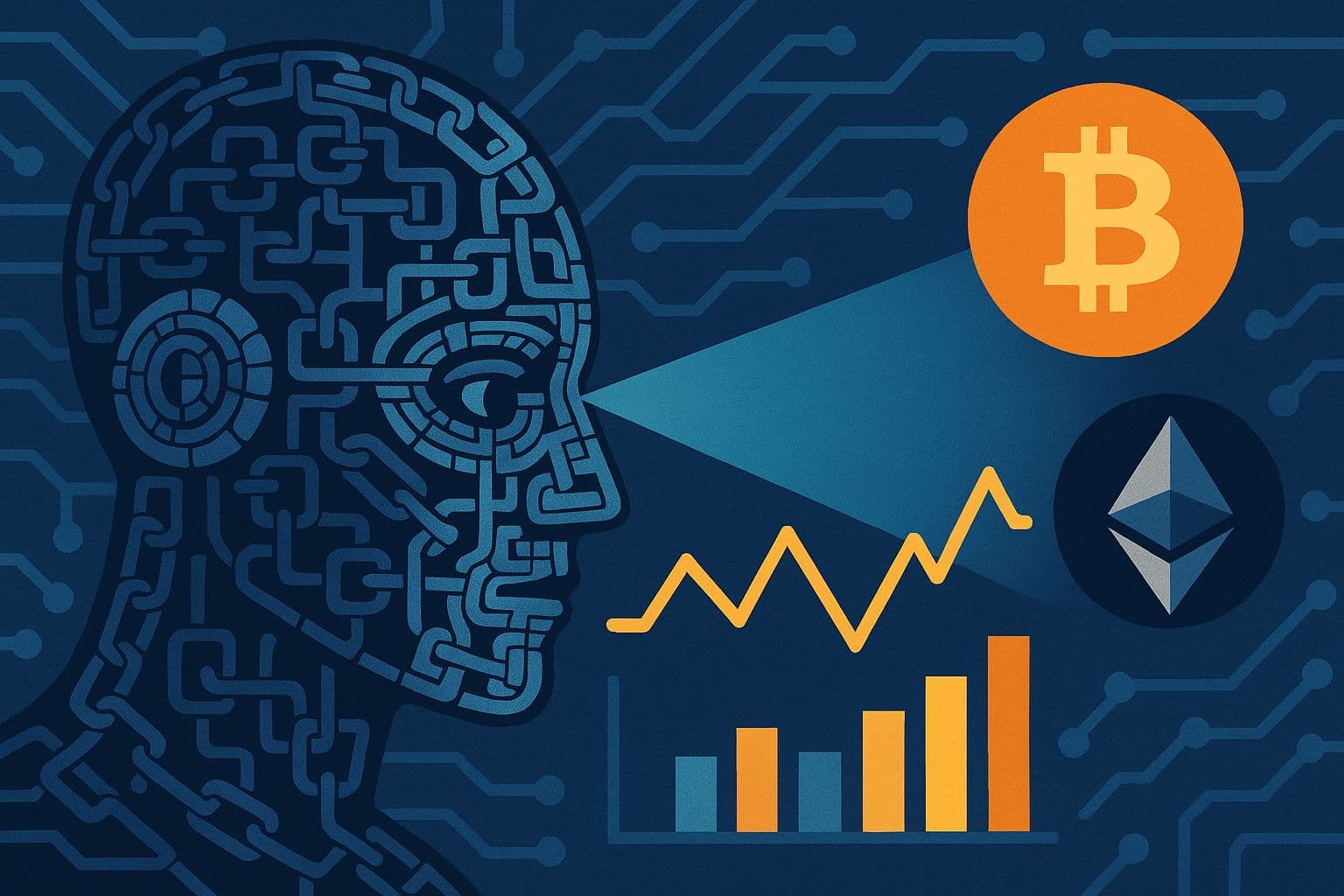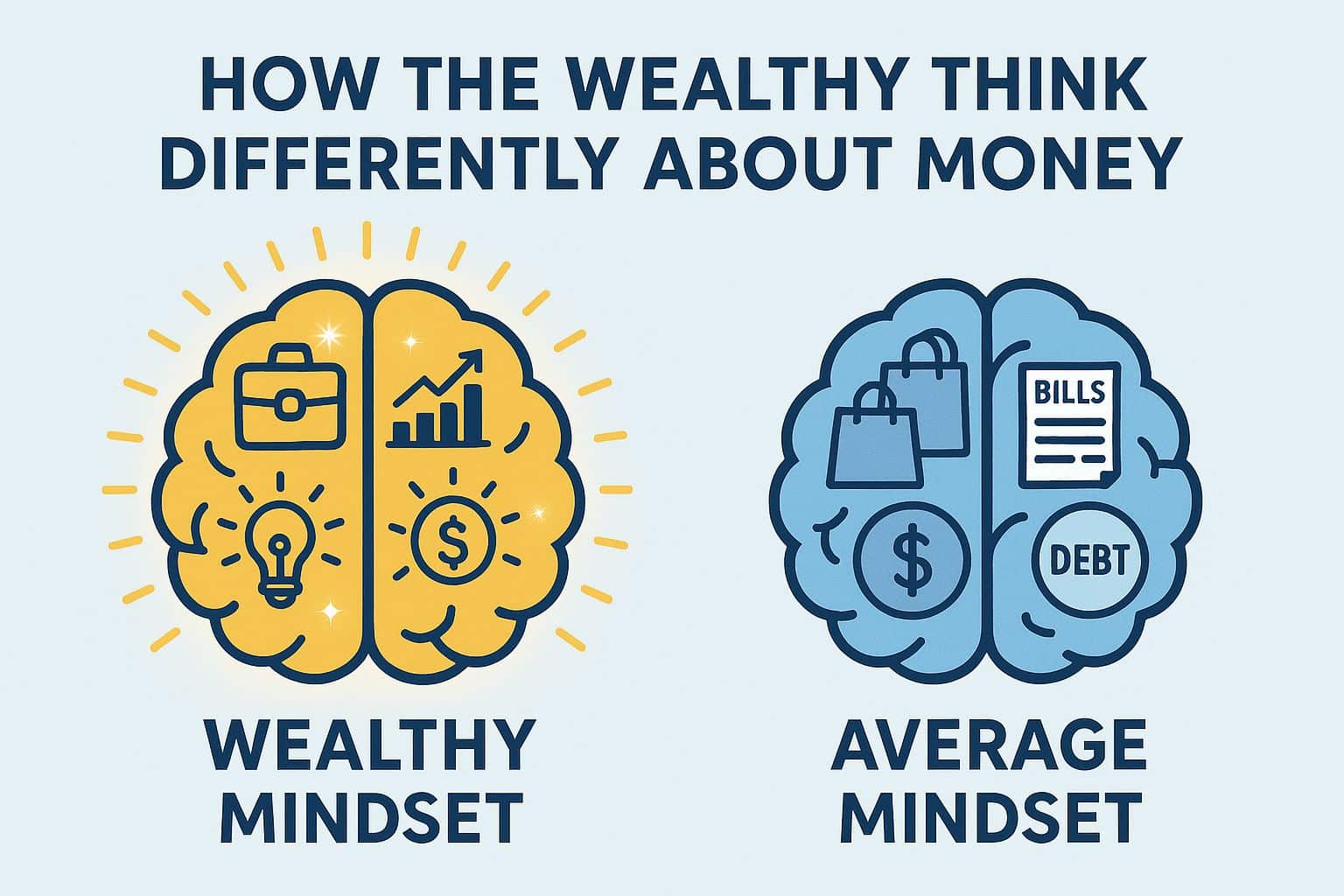How AI is Changing the Future of Investing
The emerging field of Artificial Intelligence is disrupting various sectors, and the financial industry certainly cannot be left out. From as little as momentary transactions to human services, AI is changing the future of investing by revolutionizing market analysis, decision-making, and portfolio management. AI has emerged as a primary cornerstone in finance. More and more companies and banks are assimilating AI applications into their services to fulfill the demands of their clients. Proficiency in understanding the role that AI is playing in investment leads to the viable creation and growth of wealth.
Table of Contents
ToggleThe Evolution of AI in Financial Markets
Historical context of AI in investing
AI first showed up in the finance sector as much as several decades ago. Those times were simple, and the uses of AI were characterized by robotic advisors for the first people getting into trading and investment. In the 2000s, there was a new development i.e. robots could make decisions for traders, which resulted in a significant increase in the number of trades as they could now be carried out faster. As the years went by, the ability of AI to analyze data became significantly better, and this brought along more efficient processes and flexibility to investing.
Current state of AI technologies in investing

Advanced AI systems have evolved, with their footprints being felt deeply in every corner of investing. Technological and economic transitions also demand dynamic and quite flexible AI tools that will rapidly and accurately follow the ever-changing portfolio of investors. The banking industry, for example, not only uses AI for detecting fraudulent transactions but also, for instance, predicts the shifts in market trends even before they happen. The market for AI in finance is in an exponential growth phase. The last few years have seen billions invested in AI startups, which proves how intensely the financial sector is embracing this technology.
Future trends and developments
In the future, AI will have to clear the transparency hurdle and truly be reliable and recursive to the human end. This will be achieved mainly through the use of AI that talks to support the investors and explains the steps the AI takes to give a certain piece of investment advice. Then, the data can be analyzed in real-time, allowing for faster decision-making since one will have the information at hand. There are revolutionary breakthroughs in various fields esteemed to inform the banking community with accurate, broader, and inclusive empowered futuristic devices or systems. Quantum computing will be the most advanced technology for reducing errors in predictions and enhancing the reliability of AI predictions.
How AI Improves Investment Analysis and Decision-Making
Better data analysis and pattern recognition
Quantitative modeling and predictive analytics
ML models, for example, are sometimes used to anticipate the next move in the market or to predict the trend of stock prices. The machine learning process these models go through is based on data from the past then they gradually develop by learning from the previous data. Recently, we can see how some of the AI hedge funds are beating traditional ones due to their ability to spot the trends at an early stage and react faster.
Risk assessment and management
The most advanced AI tools are those you use for the continuous monitoring of your portfolio’s health. They notice potential risks instantly and suggest the right moves to you. You as an investor, can change your holdings right away by following the advice, thus lessening your losses in a market downturn. This instant risk management is one of the easiest ways of protecting your money.
AI-Powered Tools Transforming Investor Experience
Robo-advisors and automated investment platforms

This technology is making investing easy. Human-like virtual advisors are a real thing, and they can build investment portfolios according to your goals and risk tolerance if you like. They are the ones that handle most of the tasks, and ordinarily, the fees are lower than those with human advisors. As a result, the world of investing becomes almost open to ordinary people.
Chatbots and virtual assistants
As one of the many features of AI, investors are now allowed to chat with chatbots instead of waiting on hold, should the need arise. These friendly electronic communicators are available all the time in order to answer questions or perform account management. Big players in the finance market, such as Bank of America and Charles Schwab, are typical examples of companies using chatbots to provide quality customer service.
Portfolio optimization and rebalancing
Simply put, optimization and rebalancing of your portfolio by AI-powered tools keep you relaxed. The algorithms of AI are still reviewing your equity, bonds, etc. and they highlight the best possible distribution for higher profits and lower risk. If you are a solo investor, you can use these tools to manage your portfolio professionally without being a finance expert.
Ethical Concerns and Hurdles in AI in Investment
Data privacy and security
When dealing with sensitive financial records, you have to be very careful. Hacking and data breaches are the perils of this action. One needs to make sure his or her info is secure through a rigorous security system and at the same time, follow steps to avoid being an identity theft victim.
Bias and fairness in AI algorithms

Integrating AI into traditional investment strategies
Staying ahead of technological advancements
Key Takeaways: Embrace the Evolution
You can start by exploring investment tools that are AI-driven. Be curious all the time, get new information, and use AI to achieve better and safer investing.
FAQs About How AI is Changing the Future of Investing
Machine learning in finance identifies patterns and predicts outcomes by training models on vast amounts of historical and real-time data.
AI strategies often outperform traditional methods in speed and precision, but human oversight is still crucial for context and judgment.
AI improves prediction accuracy, but it cannot guarantee results due to unpredictable market events and changing economic conditions.
Yes, many AI-powered tools are designed with beginners in mind, offering risk assessments, guided portfolios, and educational resources.
Potential risks include over-reliance on models, lack of transparency in decision-making, and exposure to biased data.
Firms like BlackRock, Vanguard, and Morgan Stanley use AI in various capacities, from client insights to algorithmic trading.
AI models often outperform random guessing and some traditional methods, but accuracy can vary based on market conditions and the quality of data.
Yes, many AI tools are designed for everyday investors, offering low-cost access to strategies once reserved for institutional players.
Be part of the FinanceCult community




